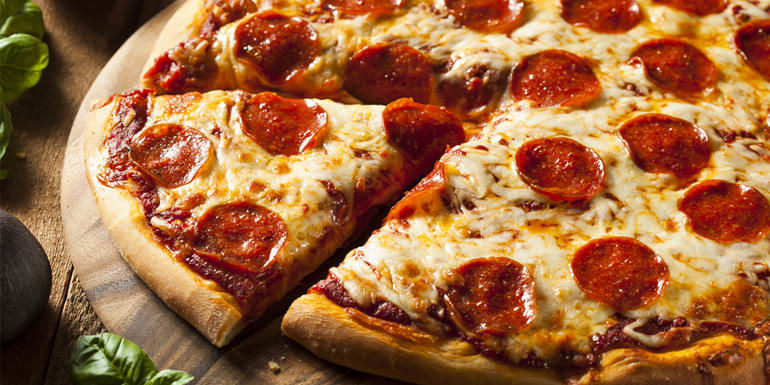
Like most of us, you’ve probably experienced an evening tossing and turning in bed but were unsure of what the reason was — especially because you felt exhausted since early afternoon! The reason you can’t sleep might be due to something you ate before bed.
“I’d suggest people avoid eating right before bed,” says Kit Broihier, M.S., R.D., of NutriComm Inc. in Maine. “Our bodies are working on repairing things and rejuvenating during sleep. It’s harder for the body to do that if it’s digesting food at the same time.”
More specifically, a heavy, big meal eaten too close to bedtime can disrupt sleep cycles. However, taking in a little protein before bed (think: Beachbody Recharge), promotes muscle and tissue repairing. The minimal digesting effort is worth the benefits to muscles, says Denis Faye, Beachbody’s senior director of nutrition content. Let’s take a look at some of the ways your food habits might be derailing your best sleep intentions.
4 Eating Habits That Can Mess With Your Sleep
You eat way too much:
You’re probably not likely to be hungry if you’re going to bed two to three hours after your last meal of the day. But, if you don’t go to bed for four or more hours until after dinner, a small snack — like plain yogurt and fruit or Beachbody Recharge — an hour before bed is fine, says Broihier. “Large meals before bed frequently keep people up because reclining after eating a big meal can cause heartburn or gastroesophageal reflux (or GERD).”
You eat fatty foods:
Foods high in fat can slow digestion and lead to reflux, which can impact sleep. High-fat meals (think fatty burgers, creamy pasta dishes, and some fast food) can cause GI distress for people at any time of day, says Broihier. “Combine that with a reclining position at night and heartburn can easily follow,” she says.
In general, try to eat a balanced meal a couple hours before bed. A recent study in the Journal of Clinical Sleep Medicine found that when study participants ate meals that were balanced, lower in saturated fat and higher in protein, they fell asleep faster than when they ate meals they prepared on their own.
You eat salty restaurant foods:
Restaurant meals and takeout foods tend to be salty, so eating those a few hours before bed could wake you up if you’re thirsty and need to make a run for water, says Broihier. They also might be fattier and larger in size than the healthy dinner you’d cook at home, so keep that in mind if you’re dining out.
If you are dining out, consider an appetizer and a salad instead of the giant entree. Even if you’re not eating out for dinner that night, think twice about eating that sodium-packed frozen dinner or salty snack before bedtime if you’re concerned you’ll be parched all night long.
You eat sugary foods:
If you like to finish off your day with a big bowl of sugary ice cream or a large sweet treat (hey there chocolate chip cookies), there’s a chance you might wake up more throughout the night. The aforementioned Journal of Clinical Sleep Medicine study found that greater sugar intake was associated with more sleep disturbances. It also found that a diet higher in fiber predicted more time spent in the stage of deep, slow wave sleep among study participants.
Have a low-sugar, fiber-rich snack an hour before bed if you’re hungry. Top 1/2 cup of low-fat plain cottage cheese with berries, or top a slice of whole wheat bread with avocado slices spritzed with lemon juice.
You add hot sauce to your meals:
Spicy foods can do a number on anyone’s digestive system, but Broihier says “Combining spicy food with fatty food (such as a cheesy, spicy Tex-Mex dish) shortly before bed can be even worse. Say no to those late-night nachos!”
By:. Beachbody

No comments:
Post a Comment